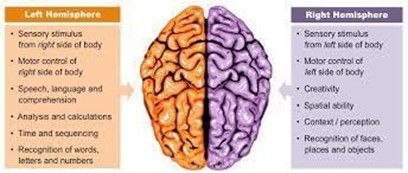A nurse is teaching a client who is experiencing manifestations of menopause. Which of the following instructions should the nurse include in the teaching?
"You should perform 30 minutes of high-impact exercises twice each week."
"You can become pregnant until 1 year passes without a menstrual period."
"You should perform 10 pelvic muscle exercises each day."
"You can use an all-based lubricant if you experience painful vaginal intercourse.
The Correct Answer is B
Choice A rationale:
High-impact exercises might not be suitable for all clients and could potentially exacerbate symptoms such as joint pain or discomfort.
Choice B rationale:
Menopause is confirmed after 12 consecutive months without a menstrual period. Until this point, there is still a risk of pregnancy, and contraceptive measures should be used.
Choice C rationale:
Pelvic muscle exercises (Kegel exercises) are important for strengthening pelvic floor muscles but are not specifically related to menopause.
Choice D rationale:
Using a water-based lubricant for painful vaginal intercourse is a helpful suggestion, but it is not the primary focus of menopause education.
Nursing Test Bank
Naxlex Comprehensive Predictor Exams
Related Questions
Correct Answer is C
Explanation
Choice A rationale:
Aphasia, or difficulty with language, is more commonly associated with left hemispheric stroke.
Choice B rationale:
Depression can be a common psychological reaction following stroke, but it is not a specific finding associated with right hemispheric stroke.
Choice C rationale:
Right hemispheric stroke can lead to loss of depth perception and spatial awareness due to its impact on the visual-spatial processing areas of the brain.
Choice D rationale:
Slow, cautious behavior is a common finding after stroke regardless of the affected hemisphere.

Correct Answer is A
Explanation
Choice A rationale:
Slurred speech could indicate a potential neurological complication in a client with sickle cell anemia, such as a stroke. Neurological symptoms require immediate attention and reporting to the healthcare provider.
Choice B rationale:
Yellowed sclera (jaundice) can be related to sickle cell anemia but is less acutely concerning than slurred speech.
Choice C rationale:
Ulcers on the ankles are often associated with sickle cell anemia, but they are not as urgent as neurological symptoms.
Choice D rationale:
Swelling in the joints is a potential manifestation of sickle cell anemia, but slurred speech indicates a more acute and concerning issue.
Whether you are a student looking to ace your exams or a practicing nurse seeking to enhance your expertise , our nursing education contents will empower you with the confidence and competence to make a difference in the lives of patients and become a respected leader in the healthcare field.
Visit Naxlex, invest in your future and unlock endless possibilities with our unparalleled nursing education contents today
Report Wrong Answer on the Current Question
Do you disagree with the answer? If yes, what is your expected answer? Explain.
Kindly be descriptive with the issue you are facing.
